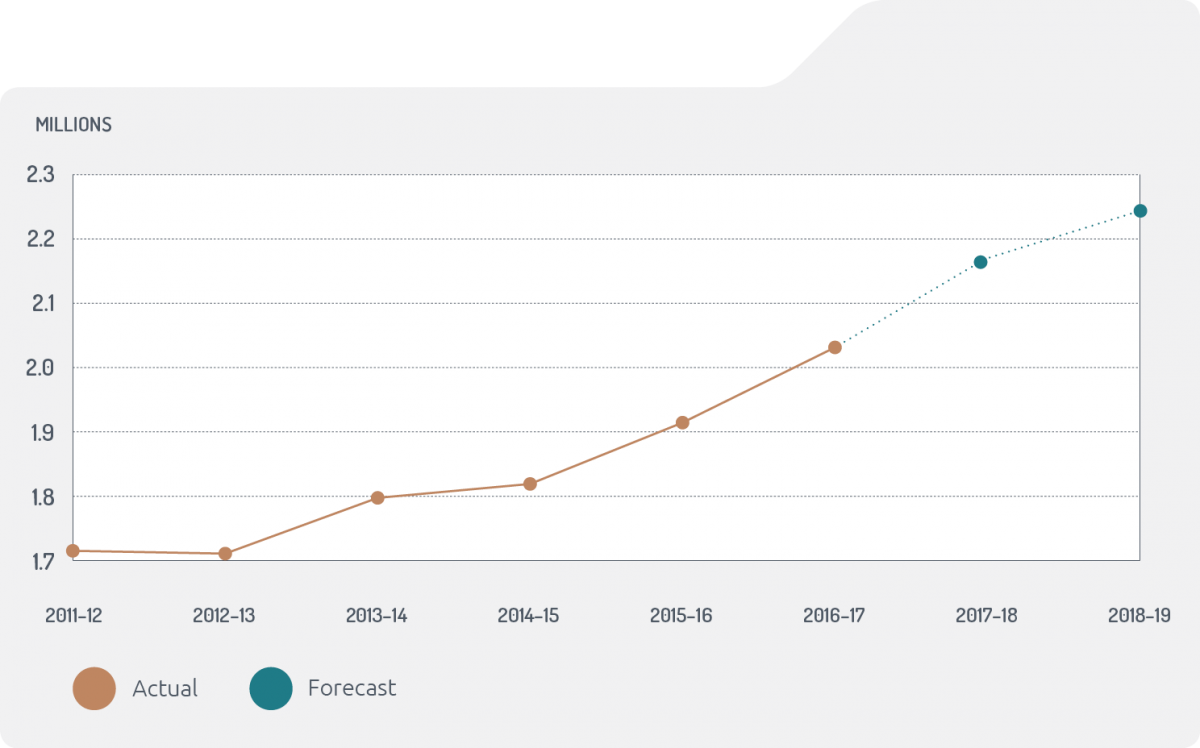High-quality delivery of passport services to clients and high standards and interoperability of Australian passports and services.
Passport redevelopment
Passport redevelopment
The department received funding in the May 2010 federal budget for the Passport Redevelopment Program (PRP) to modernise the passport issuance system in the face of a growing client base and ageing systems.
Our objective was to:
- accommodate the strong projected growth in passport issue rates
- increase the integrity of the issuance process and better align it with the National Identity Security Strategy
- improve the department’s ability to respond to future client and government requirements, including those relating to the digital economy and deregulation.
Existing systems and processes had grown incrementally over many years and were tailored to accommodate the many individual and complex circumstances that present during passport application, assessment and production processing. As such, design of the new system proved to be an extremely complex undertaking. The team encountered technical and security challenges and significant input from APO subject-matter experts was required.
Our approach involved a complicated, multi-stage program of work to deliver four new capabilities:
- Capture—the capacity to capture applicant data online in a way that enhances the integrity and quality of application data and provides a more streamlined application and lodgement process.
- Assess—a new user interface and workflow system that improves the effectiveness of assessment and enables staff to better focus on complex and high risk cases.
- Produce—bulk printing facilities capable of accommodating forecast production volumes.
- Analyse—the ability to interrogate APO databases in support of business reporting and analytical needs.
The PRP, which concluded in June 2017, delivered:
- a purpose-built passport production centre and back-up site in Victoria capable of printing over 9,000 passports per day
- a data warehouse hosting historical applicant data, with the capability to support passport assessment processing and broader business, risk and fraud analysis
- an online application platform for adults applying domestically for Australian passports, with potential to expand to all applications
- the capability for a more efficient and secure assessment and processing system.
While the majority of the PRP objectives were met, there is still some work to be done to make it fully operational.
Roll-out of the online capability will be incremental, commencing with applicants lodging in South Australia and Tasmania in early 2017–18. Geographic coverage and user volumes will expand as confidence in the system grows. Functionality to cater for child and overseas applicants will also follow.
When fully functional, the new capabilities will support all aspects of the passports issuance process and provide a foundation for ongoing development and refinement as business needs emerge—including those associated with the live capture of passport images and the broader government digital transformation agenda.

